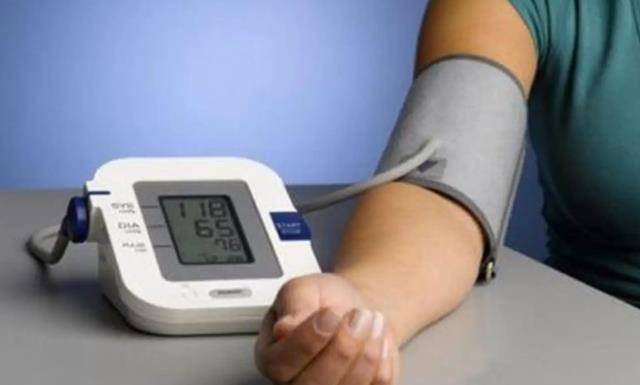Hypertension can lead to damage in the cardiovascular system, causing blood vessel walls to thicken, harden, and narrow the lumen. Prolonged hypertension can result in left ventricular hypertrophy leading to heart failure. Hypertension is no longer exclusive to the elderly; more and more young people are experiencing elevated blood pressure. Failure to control it effectively can impact both physical and mental health.
Hypertension also causes cholesterol deposition on arterial walls, leading to brittle and hardened blood vessels that may rupture. It can also trigger various issues such as cerebral infarction, coronary heart disease, and kidney disorders.
Physical Effects of Hypertension
1. Cardiac Effects
Hypertension can cause myocardial infarction, a severe condition that can lead to sudden death. Prolonged high blood pressure prevents effective blood circulation in the heart, resulting in vessel blockages and potentially causing heart diseases.
2. General Fatigue
Persistent high blood pressure can lead to overall fatigue, making individuals feel constantly tired even after rest, affecting daily life and work efficiency for about a week.
3. Kidney Issues
Failure to effectively treat long-term hypertension can result in renal failure and trigger a vicious cycle of kidney diseases, weakening the body’s immune system and increasing susceptibility to chronic illnesses.
4. Cerebral Hemorrhage
Hypertension can also manifest as cerebrovascular diseases, coronary heart disease, cerebral thrombosis, and other brain-related conditions. Therefore, individuals with hypertension must maintain stable blood pressure for their well-being.
5. Eye Damage
Hypertensive patients may experience inadequate blood supply to the eyes, leading to severe retinal ischemia near the retina. This can cause sudden retinal spasms, resulting in vision impairment, temporary blurriness, and visual issues.
Can hypertensive individuals consume walnuts?
Walnuts are rich in proteins, unsaturated fatty acids, cholesterol, vitamins, and antioxidants. While walnuts can supplement the diet of growing teenagers and individuals with blood deficiency and kidney weakness, hypertensive individuals should not consume them long-term. People with hypertension should follow a doctor’s advice on taking antihypertensive medication to maintain normal blood pressure and achieve hypertension control effectively.
As walnuts belong to the nut category and contain glyceryl esters and cholesterol, excessive consumption can affect blood pressure. The fats in walnuts can transform into calories through digestion in the stomach, leading to uneven blood flow viscosity. Therefore, adults must regulate walnut intake, consuming 1-2 daily for general individuals and limiting to one a day for hypertensive individuals. This can ensure adequate nutrition from walnuts while maintaining health.
Hypertensive individuals cannot consume walnuts? Reminder: To prevent blood pressure elevation, steer clear of “1 red, 2 white”
[Avoid “1 red”]
1. Braised Pork
Braised pork contains edible oils, sugar, and various additives during its preparation. Moderate consumption can increase appetite. However, as braised pork mainly consists of fatty meat, its intake over a long duration can lead to obesity in hypertensive individuals, affecting blood pressure stability adversely.
[Avoid “2 white”]
2. White Sugar
White sugar is a key ingredient in cooking, porridge-making, and dessert preparation. Prolonged excessive consumption of white sugar by hypertension patients can lead to sugar accumulation, negatively impacting the cardiovascular system and causing elevated blood pressure. Therefore, white sugar consumption must be within reasonable limits.
3. Table Salt
Excessive salt intake should be avoided, with the daily requirement not exceeding 5-6 grams. Overconsumption can lead to salt accumulation within the body, causing circulatory issues. When blood fails to circulate effectively in the body’s vessels, it can result in elevated blood lipids, high blood sugar, and other related problems, necessitating strict control of salt intake in daily life. Excessive iodine intake can pose hidden health risks to blood vessels.
Health Education: How to Prevent Hypertension?
1. Balanced Diet
A balanced diet maintains a normal body shape, enhances immunity, prevents hypertension, coronary heart disease, heart ailments, diabetes, and various chronic illnesses. Increasing the consumption of cereals, dietary fibers, meat, eggs, dairy, fruits, and vegetables rich in vitamins can prevent malnutrition and fat deposition, averting obesity. It is essential to eat until about 80% full per meal, as overeating can affect basic digestion and lead to chronic diseases.
2. Moderate Exercise
Engaging in appropriate physical activity can relax the body and mind. Tailored exercise based on age, physical condition, and habits can effectively improve hypertension and control blood pressure levels within reasonable ranges.
3. Smoking and Alcohol Cessation
Long-term smoking and alcohol consumption can heighten the risk of cardiovascular diseases, leading to elevated blood pressure and increased platelet aggregation and clotting. Therefore, for maintaining good health, quitting smoking and alcohol consumption is imperative.
4. Weight Control
With enhanced living standards, a plethora of delectable foods have become well-known. Prolonged overeating may disrupt body weight balance, with obesity being a prime factor for hypertension. Keeping the body within a reasonable weight range is crucial for preventing hypertension and promoting good health. #SummerHealthGuidelines#


